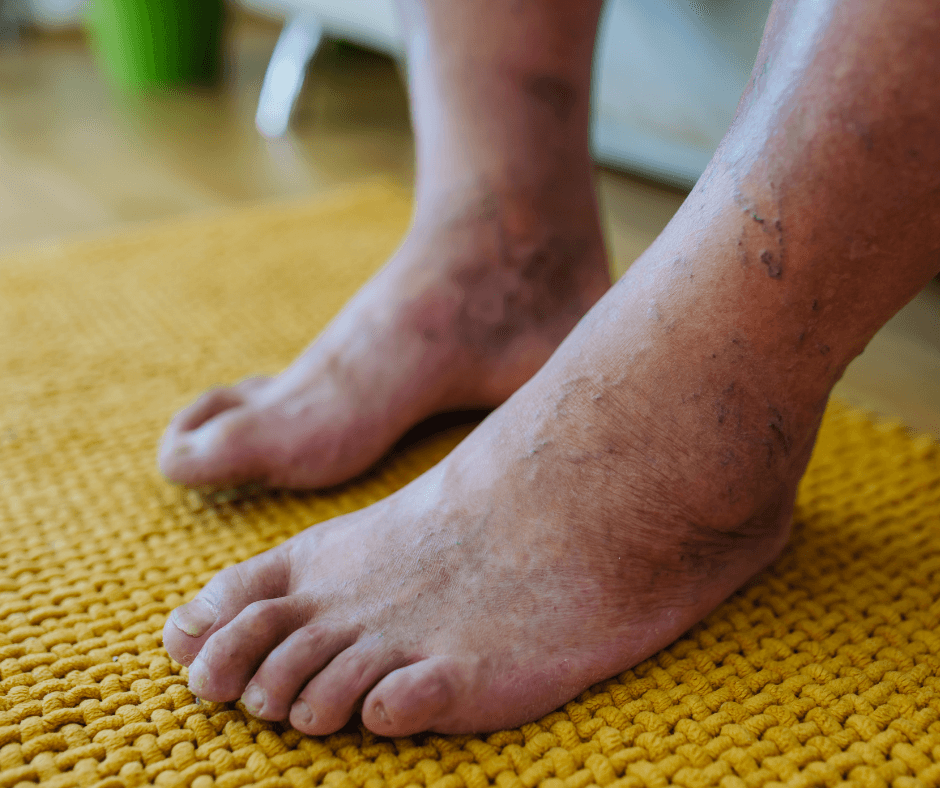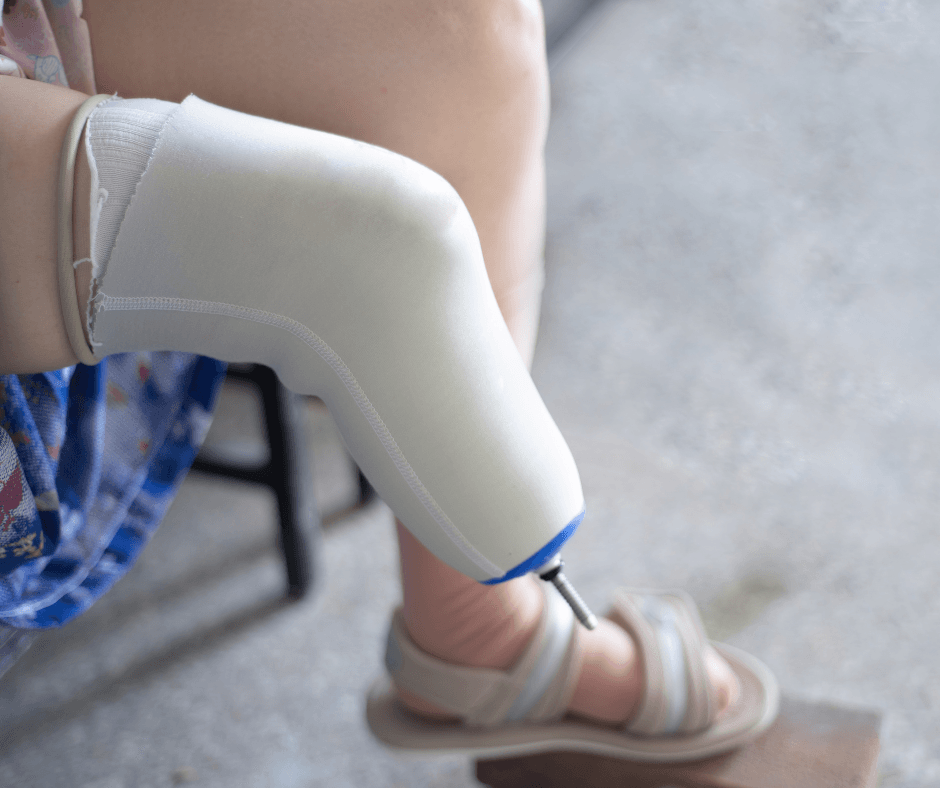Diabetes & Feet
Don't Let Diabetes and Foot Problems Limit Your Mobility
Waikato Podiatry can help you stay active and healthy
Diabetes represents a significant health challenge in New Zealand and globally. Understanding how diabetes affects your feet—and taking preventive action—can help you avoid serious complications and maintain your quality of life.
Understanding Diabetes in New Zealand
Types of Diabetes
Type 1 Diabetes
An auto-immune condition with abrupt, symptomatic onset that requires lifelong insulin management.
Type 2 Diabetes
Accounting for 85-90% of diabetes cases in New Zealand, Type 2 develops gradually and is strongly linked to obesity and physical inactivity. Organizations like Fight the Obesity Epidemic (FOE) work to address these risk factors at www.foe.org.nz.

The hidden dangers of uncontrolled diabetes
When diabetes goes undiagnosed or poorly managed, elevated blood glucose levels can cause serious complications throughout your body, affecting:
- Heart and cardiovascular system
- Kidneys
- Eyes and vision
- Feet and lower limbs
- Blood circulation
- Nervous system
Diabetes and your feet: Why prevention matters
Here's a sobering statistic: approximately half of all non-traumatic lower limb amputations in New Zealand result from diabetes complications. Many of these amputations could be prevented with proper foot care and regular monitoring.
Why are feet so vulnerable?
Diabetes affects your feet in two critical ways:
1. Nerve Damage (Neuropathy)
Loss of sensation means you may not feel cuts, blisters, or foreign objects in your shoes. Without the warning signal of pain, minor injuries can progress to serious infections.
2. Poor Circulation (Peripheral Arterial Disease)
Blocked arteries reduce blood flow to your feet, causing leg pain and preventing wounds from healing properly. Even small injuries can become major problems when healing is compromised.

Your diabetes foot care prevention plan
Most diabetic foot problems occur when injuries and infections go unnoticed and untreated. You can protect yourself by:
- Inspecting your feet daily – Check for cuts, blisters, redness, swelling, or nail problems
- Protecting your feet from injury – Wear properly fitted shoes, never walk barefoot, and check shoes for foreign objects
- Seeking professional care – Regular podiatry assessments catch problems early
Expert diabetic foot care at Waikato Podiatry clinic
Andrew and the experienced team at Waikato Podiatry Clinic specialize in comprehensive diabetic foot assessments. We identify risk factors before they become serious problems.
What we check during your assessment
- Neuropathy screening – Testing for loss of sensation
- Vascular assessment – Checking arterial pulses and circulation
- Structural examination – Identifying foot deformities like bunions and claw toes
- Skin assessment – Evaluating calluses, corns, and any wounds
- History review – Understanding previous problems or amputations

Why choose Waikato podiatry?
Our team brings over 10 years of specialized experience treating diabetic ulcerations and foot complications in both hospital settings and private practice. We combine modern treatment techniques with compassionate, expert care to deliver the best outcomes for our patients.
Follow national guidelines for your health
The Australasian National Diabetes Health Care Guidelines recommend that all people with diabetes have their feet professionally examined by a podiatrist at least once every 12 months—more frequently if risk factors are present.
Don't wait for problems to develop. Proactive foot care today can prevent serious complications tomorrow.
Don’t allow diabetes and its foot related problems to immobilise you!
WAIKATO PODIATRY CAN HELP YOU
 Diabetes is a big problem in New Zealand as well as around the world!
Diabetes is a big problem in New Zealand as well as around the world!
Kinds of Diabetes:
If the Diabetes goes undiagnosed or is poorly treated then the high blood glucose levels cause complications throughout the whole body affecting:
- Heart
- Kidney
- Eyes
- Feet
- Circulation
- Nerves
Diabetes and Feet:
Around half of all non-traumatic lower limb amputations in NZ are due to Diabetes complications. That is a lot of unnecessary amputations!!
When it comes to diabetes and feet – prevention is the goal.
Most foot problems in people with diabetes occur when injuries – and often infections – go unnoticed and untreated due to nerve damage, or when healing is delayed due to poor circulation.
To Prevent problems:
- Protect your feet from injury.
- Inspect your feet every day (we can show you how).
The feet are affected because the circulation and sensation are often reduced.
Sensation – the pain response may be lost in the feet meaning you cannot feel if there is something wrong with your foot, eg. Cut, foreign object in your shoe etc.
Circulation – Arteries delivering blood to the feet can get blocked and cause achy legs and wounds that do not heal
Diabetic feet and Waikato Podiatry Clinic:
Andrew and his colleagues at Waikato Podiatry Clinic are experts at assessing the foot of someone with Diabetes and checking on any signs (risk factors) which may indicate future problems.
Some of the signs and risk factors include:
- Loss of feeling (neuropathy)
- Peripheral arterial disease (loss of pulses)
- Foot deformity (bunions, claw toes etc)
- Plantar callouses and corns Wounds on the feet
- Previous problems or amputations
The Waikato Podiatry team have dealt with diabetic ulcerations and foot problems in Specialist Hospital Clinics as well as private practice for over 10 years. Our modern techniques and experienced staff will ensure you receive the best care available.
Australasian National Diabetes Health Care Guidelines recommends people with Diabetes have their feet checked by a Podiatrist at least every 12 months.
Further reference: Ministry of Health, NZ Guidelines Group www.nzgg.org.nz


